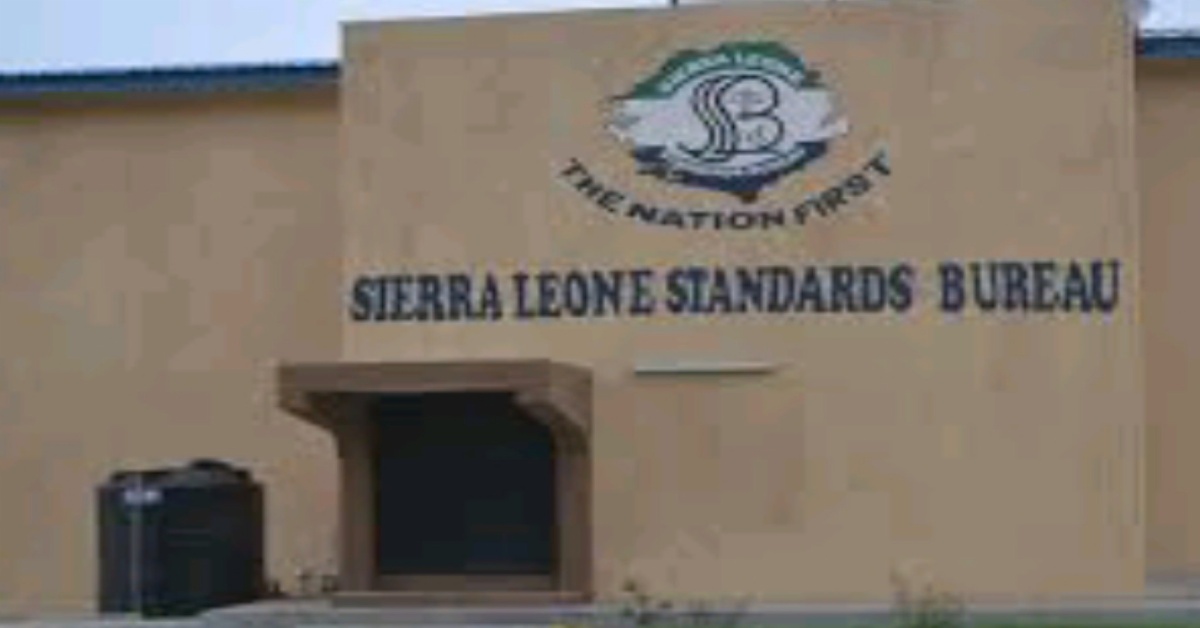The Sierra Leone Standards Bureau recently brought to light the critical challenges it faces in promoting standardization and quality control across the nation.
As economic pressures intensify, the Bureau’s mission to enhance national quality structures is increasingly jeopardized by inadequate funding.
The Bureau’s mandate is clear: to drive economic development through the promotion of standardization, metrology, and performance assessment. Their work is essential not only for aligning with government priorities but also for safeguarding public health and safety. However, recent developments have underscored the significant financial constraints that threaten to undermine these efforts.
In 2023, Finance Manager Sylvester P. Kamara highlighted the Bureau’s progress in developing standards across various sectors, particularly in food safety and industrial practices. Despite these strides, Kamara noted that budgetary limitations severely hindered the Bureau’s operational capacity. The Bureau had requested a recurrent budget of SLE9.5 million and a capital budget of SLE18.5 million for the year. Yet, only SLE4.393 million was approved, and a slightly smaller amount, SLE4.213 million, was disbursed, leaving a variance of SLE179,400.
This financial shortfall has had profound implications.
Although the Bureau conducted extensive testing in 2023-analyzing 905 samples in the Food Chemical Lab and 619 samples in the Food Microbiology Lab-its ability to continue such work has been severely compromised.
In the first half of 2024 alone, the Bureau tested 244 samples of imported petroleum products, along with 50 samples for recertification tests, of petroleum products from shore tanks of oil marketing companies and 65 samples for general quality assurance tests of petroleum products and base oil lubricants.
Despite these achievements, the absence of capital expenditure funding has hampered the Bureau’s capacity to perform critical functions such as market surveillance and the establishment of new testing laboratories.
One of the most pressing challenges facing the Bureau is the logistical difficulty in monitoring the quality of imported goods. The urgent need for a material science lab to test various products remains unmet due to the lack of capital budget.
Furthermore, the Bureau’s testing and calibration laboratories have yet to achieve accreditation, which complicates efforts to ensure compliance with both national and international standards.
As the Bureau prepares for the future, its budget request of SLE21.5 million for 2024 was met with approval for only SLE4.867 million, leaving a variance of SLE3.776 million.
This ongoing budget crisis raises critical questions about how the Bureau will secure the necessary funds to meet its operational needs and improve its capabilities. The urgency of these issues is underscored by the Bureau’s SLE4.987 million budget request for 2025, which highlights the critical need for enhanced funding to support its essential operations.
Addressing these funding challenges is essential for the Bureau to fulfill its mandate and improve the quality of goods and services in Sierra Leone. Executive Director John Kaisam emphasized that the Bureau’s work is not merely a bureaucratic obligation but a vital necessity for protecting public health and economic stability.
The future of quality assurance and standardization in Sierra Leone depends on overcoming these significant hurdles.
The Bureau’s efforts will require collaboration among government agencies, private sector stakeholders, and the community to establish a robust framework for quality assurance and standardization.
Without sufficient resources, the Bureau’s ability to protect public health, ensure safety, and promote development effective economic through standardization practices remains in jeopardy.











